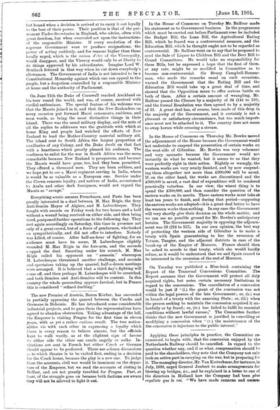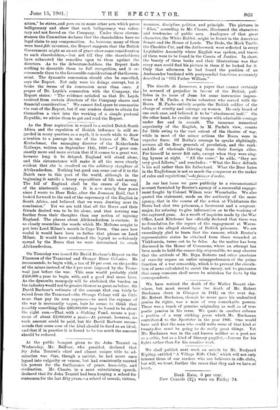Applying these principles in practice, the Committee re- commend, to
begin with, that the concession enjoyed by the Netherlands Railway should be cancelled. In regard to the question whether any, and if so what, compensation should be paid to the shareholders, they note that the Company not only took an active part in carrying on the war, but in preparing for it. The managing director, Mr. Van Kretschmar, for instance, in July, 1899, urged General Joubert to make arrangements for blowing up bridges, Eec., and he explained in a, letter to one of the directors in Holland how the Company had been plus royalists que le roi. "We have made cannons and amain-
nition," he states, and goes on to name other acts 'which prove belligerency and show that such belligerency was volun- tary and not forced on the Company. Under these circum- stances the Committee declares that the shareholders have no legal claim to any compensation. As, however, many of them were bondfitle investors, the Report suggests that the British Government might as an act of grace show some consideration to such shareholders,—but not till they (the shareholders) have exhausted the remedies open to them against the directors. As to the debenture-holders, the Report finds nothing to disentitle them to full recognition, and it re- commends them to the favourable consideration of the Govern- ment. The dynamite concession should also be cancelled, says the Report. Not only were its doings corrupt, but it broke the terms of its concession more than once. A propos of Dr. Leyds's connection with the Company, the Report states : The evidence satisfied us that Dr. Leyds received from certain directors of the Company shares and financial consideration." We cannot find space to summarise the rest of the Report, but if our readers desire to obtain for themselves a view into the working of a simple pastoral Republic, we advise them to get and read the Report.











































 Previous page
Previous page